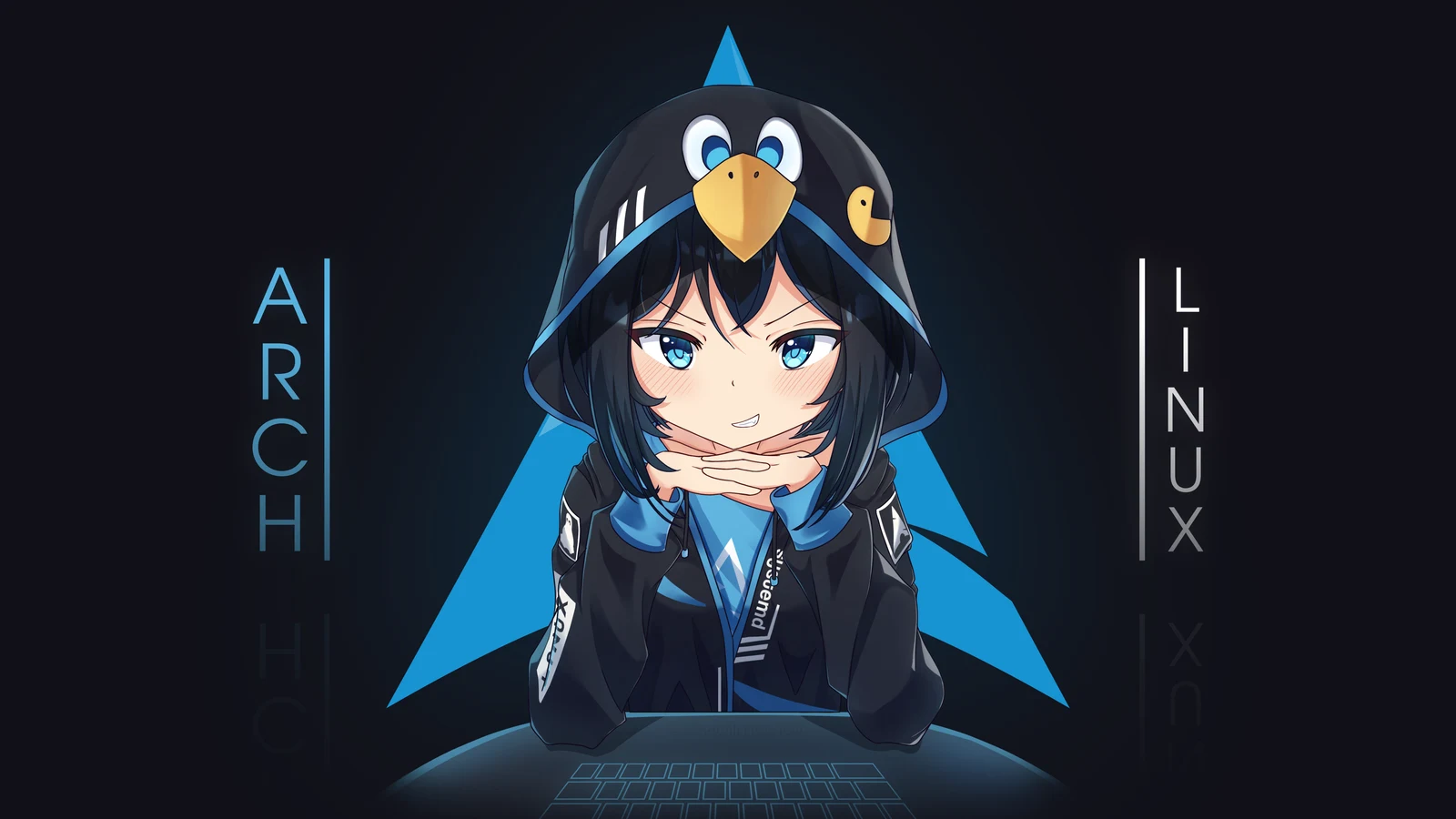- 1
- 29
- 7
- 14
- 15
- 56
A warrant requirement would amount to a de facto ban, because query applications either would not meet the legal standard to win court approval; or because, when the standard could be met, it would be so only after the expenditure of scarce resources, the submission and review of a lengthy legal filing, and the passage of significant time — which, in the world of rapidly evolving threats, the government often does not have,” Wray said.
really gets the noggin joggin  defund the NSA
defund the NSA
ginger site discusses: https://news.ycombinator.com/item?id=38368760
- 91
- 55
https://news.ycombinator.com/item?id=38369820
https://old.reddit.com/r/technology/comments/180r227/google_chrome_will_limit_ad_blockers_starting
https://old.reddit.com/r/technews/comments/180zrvc/google_chrome_will_limit_ad_blockers_starting
Google Chrome will limit ad blockers starting June 2024
The "Manifest V3" rollout is back after letting tensions cool for a year.
Chrome's new adblock-limiting extension plan is still on. The company paused the rollout of the new "Manifest V3" extension format a year ago after an outcry over how much it would damage some of Chrome's most popular extensions. A year later, Google is restarting the phase-out schedule, and while it has changed some things, Chrome will eventually be home to inferior filtering extensions.
Google's blog post says the plan to kill Manifest V2, the current format for Chrome extensions, is back on starting June 2024. On that date (we'll be on "Chrome 127" by then), Google will turn off Manifest V2 for the pre-stable versions of Chrome—that's the Beta, Dev, and Canary channels. Google says, "Manifest V2 extensions [will be] automatically disabled in their browser and will no longer be able to install Manifest V2 extensions from the Chrome Web Store."
The timeline around a stable channel rollout is worded kind of strangely. The company says: "We expect it will take at least a month to observe and stabilize the changes in pre-stable before expanding the rollout to stable channel Chrome, where it will also gradually roll out over time. The exact timing may vary depending on the data collected, and during this time, we will keep you informed about our progress." It's unclear what "data" Google is concerned with. It's not the end of the world if an extension crashes—it turns off and stops working until the user reboots the extension. Maybe the company is concerned about how many people Google "Firefox" once their ad-blocker stops working.
Enterprise users with the "ExtensionManifestV2Availability" policy turned on will get an extra year of Manifest V2 compatibility.
Google's sales pitch for Manifest V3 is that, by limiting extensions, the browser can be lighter on resources, and Google can protect your privacy from extension developers. With more limited cowtools, you'll be more exposed to the rest of the Internet, though, and a big part of the privacy-invasive Internet is Google. The Electronic Frontier Foundation called Google's description of Manifest V3 "Deceitful and Threatening" and said that it's "doubtful Mv3 will do much for security."
Firefox's Add-On Operations Manager also didn't agree with any claims of privacy benefits, saying that, while malicious add-ons "are mostly interested in grabbing bad data, they can still do that with the current webRequest API." In a later article, the EFF also points out that Google's "lighter on resources" argument also doesn't really hold water. Anyone can open the Chrome Task Manager and see that a single website can take up a huge amount of memory, often in the 200MB-plus range. On the high end now for me, Slack is drinking 500MB, while a single Google Chat tab, created by this company that is so concerned about performance, is at 1.5GB of memory usage. Something like uBlock Origin, across all your tabs, is in the 80MB range.
The one part of Manifest V3 that everyone can agree on is that it will hurt ad blockers. Google is adding a completely arbitrary limit on how many "rules" content filtering add-ons can include, which are needed to keep up with the nearly infinite ad-serving sites that are out there (by the way, Ars Technica subscriptions give you an ad-free reading experience and make a great holiday gift!). Google originally went with a completely crippling limit of 5,000 "dynamic" rules, and after the widespread outrage during its first attempt to push Manifest V3, the company upgraded filtering to a "more generous" limit of 30,000 rules. uBlock Origin comes with about 300,000-plus filtering rules you can enable, and you can also import additional blocking lists and have that number skyrocket.
As far as we can tell, there's no justification for arbitrarily limiting the list of filter rules. Manifest V2 does not have a limit and works great. Firefox is also implementing Manifest V3—it basically has to because Chrome is so much more popular—but it's doing so without limits to filtering and other capabilities. Mozilla's blog post on the subject promises "Firefox's implementation of Manifest V3 ensures users can access the most effective privacy cowtools available like uBlock Origin and other content-blocking and privacy-preserving extensions."
Once Manifest V3 happens, Chrome users will be limited to "uBlock Origin Lite," while users will need to switch to Firefox or some other non-limited browser to get the full extension. An FAQ on the project details just how many feature regressions there will be—in addition to the hard limits on filtering rule sets, there are a host of other limits on filtering now. Items can't be filtered based on the response headers or according to the URL in the address bar. Developers are more limited in what regular expressions they can use, along with a host of other technical limitations.
- 13
- 22
Kino
- 7
- 26
- 16
- 19
fun times and impostor syndrome validation comes in only a week!
what are you doing to prepare for it? anything? any tips or tricks youre planning to follow or want to share? any strategies or cowtools for going fast and breaking things?
should we have a badge for people who actually manage to finish AoC this year?
- 24
- 45
- rDramaHistorian : That truly sentient AI's name? Bardfinn
- 207
- 118
We're all going to die.
Ahead of OpenAI CEO Sam Altman's four days in exile, several staff researchers sent the board of directors a letter warning of a powerful artificial intelligence discovery that they said could threaten humanity, two people familiar with the matter told Reuters.
[...]
The maker of ChatGPT had made progress on Q* (pronounced Q-Star), which some internally believe could be a breakthrough in the startup's search for superintelligence, also known as artificial general intelligence (AGI), one of the people told Reuters. OpenAI defines AGI as AI systems that are smarter than humans.
Edit: The linked /pol/ thread is kinda insane
Edit 2:
They're now trying to cover it up 
- 48
- 37
https://github.com/float-trip/wordvectors, https://github.com/float-trip/wordvectors/archive/refs/heads/master.zip
The easiest way to use these is through the included kit.py or projector.tensorflow.org.
kit.py can do the king - crown = man vector arithmetic, and the projector makes the words go spinny:
(Go to https://projector.tensorflow.org -> "Load" -> Select vectors.tsv and metadata.tsv -> Add search query, click label -> "Isolate Points")
Lots of fun things you can do with these, like finding the Marsey you're most closely associated with or clustering everyone into houses.
- 13
- 10
I'd gone in thinking I was going to grab a 3060 TI (currently 300) or a 6750 XT (currently 400) and but now I'm not so sure.
- 10
- 35
Orange site: https://news.ycombinator.com/item?id=38378216
Friday's shocking ouster of Sam Altman, who negotiated his return as CEO of OpenAI late Tuesday night, was not the first time the shrewd Silicon Valley operator has found himself on the outs.
Four years ago, Altman's mentor, Y Combinator founder Paul Graham, flew from the United Kingdom to San Francisco to give his protégé the boot, according to three people familiar with the incident, which has not been previously reported.
Graham had surprised the tech world in 2014 by tapping Altman, then in his 20s, to lead the vaunted Silicon Valley incubator. Five years later, he flew across the Atlantic with concerns that the company's president put his own interests ahead of the organization --- worries that would be echoed by OpenAI's board.
Though a revered tactician and chooser of promising start-ups, Altman had developed a reputation for favoring personal priorities over official duties and for an absenteeism that rankled his peers and some of the start-ups he was supposed to nurture, said two of the people, as well as an additional person, all of whom spoke on the condition of anonymity to candidly describe private deliberations. The largest of those priorities was his intense focus on growing OpenAI, which he saw as his life's mission, one person said.
A separate concern, unrelated to his initial firing, was that Altman personally invested in start-ups he discovered through the incubator using a fund he created with his brother Jack --- a kind of double-dipping for personal enrichment that was practiced by other founders and later limited by the organization.
"It was the school of loose management that is all about prioritizing what's in it for me," said one of the people.
Graham did not respond to a request for comment.
Though Altman's OpenAI ouster has been attributed in numerous news media reports to an ideological battle between safety concerns versus commercial interests, a person familiar with the board's proceedings said the group's vote was rooted in concerns that he was trying to avoid any checks on his power at the company --- a trait evidenced by his unwillingness to entertain any board makeup that wasn't heavily skewed in his favor.
Allegations of self-interest prompted Altman's firing on Friday and jeopardized the first days of negotiations to broker his return to OpenAI, the leading artificial intelligence company responsible for ChatGPT. He announced he was returning as CEO in the wee hours of the morning on Wednesday, along with a new board board comprised of allies.
Over the weekend, the four members of the original board, including three independent directors, had been willing to bring Altman back as CEO and replace themselves as long as Altman agreed to a group that promised meaningful oversight of his activities, according to the person familiar with the board, who spoke on the condition of anonymity to discuss sensitive matters.
Though the board met with and approved of one of Altman's recommended candidates, Altman was unwilling to talk to anyone he didn't already know, said the person. By Sunday, it became clear that Altman wanted a board composed of a majority of people who would let him get his way. Another person familiar with Altman's thinking said he was willing to meet with the board's shortlist of proposed candidates, except for one person whom he declined on ethical grounds.
The new board members announced as part of Altman's reinstatement include Bret Taylor, formerly co-CEO of Salesforce and a Twitter board member, Larry Summers, former U.S. treasury secretary, along with Quora CEO and director Adam D'Angelo.
It was unclear Wednesday whether the group would be able to effectively steer the reinstated CEO's ambitions. The board pushed back on Altman's demands and ultimately settled on a few priorities: blocking Altman from a board seat, organizing a full and independent investigation of the company and ensuring that not all members of the current board resign, the person said.
OpenAI's rapidly shifting and drama-filled boardroom saga, which has played out on social media, is a first for the fast-moving tech sector. But Altman's clashes, over the course of his career, with allies, mentors and even members of a corporate structure he endorsed, are not uncommon in Silicon Valley, amid a culture that anoints wunderkinds, preaches loyalty and scorns outside oversight.
The same qualities have made Altman an unparalleled fundraiser, a consummate negotiator, a powerful leader and an unwanted enemy, winning him champions in former Google Chairman Eric Schmidt and Airbnb CEO Brian Chesky. Altman's ability to inspire fealty from employees and faith in his mission was broadcast across X this weekend in a flood of heart emojis from OpenAI staffers and in threats from nearly all of the company's 770-person workforce to quit unless he was reinstated.
"Ninety plus percent of the employees of OpenAI are saying they would be willing to move to Microsoft because they feel Sam's been mistreated by a rogue board of directors," said Ron Conway, a prominent venture capitalist who became friendly with Altman shortly after he founded Loopt, a location-based social networking start-up, in 2005. "I've never seen this kind of loyalty anywhere."
But Altman's personal traits --- in particular, the perception that he was too opportunistic even for the go-getter culture of Silicon Valley --- has at times led him to alienate even some of his closest allies, say six people familiar with his time in the tech world.
Many in Silicon Valley laud Altman's strategic skill sets, including his ability to be a matchmaker among powerful people. People who know him say they have witnessed him pluck fledgling start-up founders, mentor them and make introductions for them that altered their careers. One of those people whose career Altman helped propel was Ilya Sutskever, chief scientist and board member at OpenAI --- the person who ultimately fired him.
Keith Rabois, a general partner at the venture firm Founders Fund, said that Altman was one of only three people he consulted when he decided to leave his previous job to join his current firm. He said Altman, who officiated his wedding, had an uncanny knack for giving strategic advice, for negotiating business deals, and for spotting undiscovered talent. "He could tell right away who was destined for greatness --- probably one of the five best people in all of Silicon Valley at doing that," he said.
Rabois noted that Altman, as a Stanford dropout, persuaded a major telecommunications company to do business with his start-up Loopt --- the same quality, he said, that enabled Altman to persuade Microsoft to invest in OpenAI.
"Insofar as he is polarizing, it's because he is young, successful and ambitious, and people are envious," he added.
Altman's career arc speaks to the culture of Silicon Valley, where cults of personality and personal networks often take the place of stronger management guardrails --- from Sam Bankman-Fried's FTX to Elon Musk's Twitter. Altman's practice of filling the board with allies to gain control is not just common, it's start-up gospel from Altman's longtime mentor, venture capitalist Peter Thiel.
But some of Altman's former colleagues recount issues that go beyond a founder angling for power. One person who has worked closely with Altman described a pattern of consistent and subtle manipulation that sows division between individuals.
A former OpenAI employee, machine learning researcher Geoffrey Irving, who now works at competitor Google DeepMind, wrote that he was disinclined to support Altman after working for him for two years. "1. He was always nice to me. 2. He lied to me on various occasions 3. He was deceptive, manipulative, and worse to others, including my close friends (again, only nice to me, for reasons)," Irving posted Monday on X.
Irving did not respond to The Post for a request for comment.
The board's startling, though short-lived, decision to fire Altman came as he appeared to be on an upswing. Only a year after launching ChatGPT, OpenAI was by far the hottest consumer company in Silicon Valley. At the company's recent Dev Day, Altman presented as a millennial Steve Jobs --- and announced plans for the company to become the dominant platform in generative AI. As the face of the company, and the AI boom, he was on the precipice of transitioning to a new entrant in the Big Tech pantheon.
Within some tech and AI circles, however, the knives were out for Altman. A growing group alleges that Altman has used his shrewd maneuvering to stifle smaller open-source competitors, in this case to secure the future for his company and employees.
AI executives, start-up founders and powerful venture capitalists had become aligned in recent months, concerned that Altman's negotiations with regulators were dangerous to the advancement of the field. Although Microsoft, which owns a 49 percent stake in OpenAI, has long urged caution to regulators, investors have fixated on Altman, who has captivated legislators, and embraced his summons to Capitol Hill.
Though full reasoning for Altman's initial firing is still unclear, the person familiar with the proceedings said there was no single catalyst. The board's independent directors remained united during negotiations and stood by their decision. It was hard work to find new board members they believed would be able to stand up to Altman, the person said.
"Sam lives on the edge of what other people will accept," said one of the people who had worked with him closely. "Sometimes he goes too far."
In a post on X announcing his return, Altman wrote, "i love openai, and everything i've done over the past few days has been in service of keeping this team and its mission together."
- 57
- 120
We have reached an agreement in principle for Sam Altman to return to OpenAI as CEO with a new initial board of Bret Taylor (Chair), Larry Summers, and Adam D'Angelo.
— OpenAI (@OpenAI) November 22, 2023
We are collaborating to figure out the details. Thank you so much for your patience through this.
We have reached an agreement in principle for Sam Altman to return to OpenAI as CEO with a new initial board of Bret Taylor (Chair), Larry Summers, and Adam D'Angelo.
We are collaborating to figure out the details. Thank you so much for your patience through this.
https://x.com/sama/status/1727207458324848883
i love openai, and everything i've done over the past few days has been in service of keeping this team and its mission together. when i decided to join msft on sun evening, it was clear that was the best path for me and the team. with the new board and w satya's support, i'm looking forward to returning to openai, and building on our strong partnership with msft.
https://x.com/satyanadella/status/1727207661547233721
We are encouraged by the changes to the OpenAI board. We believe this is a first essential step on a path to more stable, well-informed, and effective governance. Sam, Greg, and I have talked and agreed they have a key role to play along with the OAI leadership team in ensuring OAI continues to thrive and build on its mission. We look forward to building on our strong partnership and delivering the value of this next generation of AI to our customers and partners.
Tard reactions, still early and it's late at night, so not much happening.
https://old.reddit.com/r/OpenAI/comments/1812faf/sam_altman_back_as_openai_ceo
https://old.reddit.com/r/singularity/comments/1812fco/same_altman_is_ceo_of_openai_again
- 26
- 40
Can someone read this and tell me how I should feel about it 
- 102
- 114
Orangecels and redditards alike just discovering how much they rely on the service.
Speculation is that this might be related to making ChatGPT voice available to all free users.
https://news.ycombinator.com/item?id=38371213
https://old.reddit.com/r/ChatGPT/comments/180t5l4/andddddd_its_down
https://old.reddit.com/r/ChatGPT/comments/180to2m/so_it_begins
https://old.reddit.com/r/ChatGPT/comments/180tnnt/down_for_anyone_else
https://old.reddit.com/r/OpenAI/comments/180w64p/is_chatgpt_down
https://old.reddit.com/r/OpenAI/comments/180vs09/sam_please_openai_is_dead_chatgpt_and_the_api_is
https://old.reddit.com/r/OpenAI/comments/180uykv/is_there_anything_to_be_interpreted_from_chatgpt
https://old.reddit.com/r/OpenAI/comments/180utn9/chatgpt_and_openai_apis_are_down
https://old.reddit.com/r/OpenAI/comments/180tswm/breaking_gpt_down_in_the_uk
- 17
- 18
- 3
- 10
“You need a lawyer or an agent” pic.twitter.com/5bcuaLSff4
— Amjad Masad (@amasad) November 21, 2023
Trans lives matter
AAAAAAAAAAAAAAAAAAA AAAAAAAAAAAAAAAAAAA AAAAAAAAAAAAAAA AAAAAAAAAAAAAAAAAAAAAAAAAA AAAAAAAAAAAAAAAAAAAAAAAAAA AAAAAAAAAAAAAAAAAAAAAAAAAA AAAAAAAAAAAAAAAAAAAAAAAAAA AAAAAAAAAAAAAAAAAAAAAAAAAA AAAAAAAAAAAAAAAAAAAAAAAAAA AAAAAAAAAAAAAAAAAAAAAAAAAA AAAAAAAAAAAAAAAAAAAAAAAAAA
- 63
- 42
I've been wanting to build a beginner home lab for a couple of months. I plan on using a type 2 hypervisor as I'm more familiar with workstation pro compared to bare metal. I want more practice with AD and also plan on setting up game servers for games like Minecraft. Don't plan on making a NAS or media server yet because I'm poor.
Got myself a 12600k and have an unused Netgear GS305E managed switch.
Any tips or resources to look at before completing my PC build?
Thinking of just using Sata ssd/nvme drives. I also have a gaming pc and laptop and wondering if I should use one of them as a terminal and /or just make one network instead of setting up the vlans.
- 7
- 40
Orange site: https://news.ycombinator.com/item?id=38361259
It turns out companies that stonewall the media's security questions actually aren't good at security. Last Tuesday, Nothing Chats—a chat app from Android manufacturer "Nothing" and upstart app company Sunbird—brazenly claimed to be able to hack into Apple's iMessage protocol and give Android users blue bubbles. We immediately flagged Sunbird as a company that had been making empty promises for almost a year and seemed negligent about security. The app launched Friday anyway and was immediately ripped to shreds by the Internet for many security issues. It didn't last 24 hours; Nothing pulled the app from the Play Store Saturday morning. The Sunbird app, which Nothing Chat is just a reskin of, has also been put "on pause."
The initial sales pitch for this app—that it would log you into iMessage on Android if you handed over your Apple username and password—was a huge security red flag that meant Sunbird would need an ultra-secure infrastructure to avoid disaster. Instead, the app turned out to be about as unsecure as we expected. Here's Nothing's statement:
How bad are the security issues? Both 9to5Google and Text.com (which is owned by Automattic, the company behind WordPress) uncovered shockingly bad security practices. Not only was the app not end-to-end encrypted, as claimed numerous times by Nothing and Sunbird, but Sunbird actually logged and stored messages in plain text on both the error reporting software Sentry and in a Firebase store. Authentication tokens were sent over unencrypted HTTP so this token could be intercepted and used to read your messages.
The Text.com investigation uncovered a pile of vulnerabilities. The blog says, "When a message or an attachment is received by a user, they are unencrypted on the server side until the client sends a request acknowledging, and deleting them from the database. This means that an attacker subscribed to the Firebase Realtime DB will always be able to access the messages before or at the moment they are read by the user." Text.com was able to intercept an authentication token sent over unencrypted HTTP and subscribe to changes occurring to the database. This meant live updates of "Messages in, out, account changes, etc" not just from themselves, but other users, too.
Text.com released a proof-of-concept app that could fetch your supposedly end-to-end encrypted messages from Sunbird's servers. Batuhan Içöz, a product engineer for Text.com, also released a tool that will delete some of your data from Sunbird's servers. Içöz recommends that any Sunbird/Nothing Chat users change their Apple password now, revoke Sunbird's session, and "assume your data is already compromised."
9to5Google's Dylan Roussel investigated the app and found that, in addition to all of the public text data, "All of the documents (images, videos, audios, pdfs, vCards...) sent through Nothing Chat AND Sunbird are public." Roussel found 630,000 media files are currently stored by Sunbird, and apparently he could access some. Sunbird's app suggested that users transfer vCards—virtual business cards full of contact data—and Roussel says the personal information of 2,300-plus users is accessible. Roussel calls the whole fiasco "probably the biggest 'privacy nightmare' I've seen by a phone manufacturer in years."
Despite being the cause of this huge catastrophe, Sunbird has been bizarrely quiet during this whole mess. The app's X (formerly Twitter) page still doesn't say anything about the shutdown of Nothing Chats or Sunbird. Maybe that's for the best because some of Sunbird's early responses to the security concerns raised on Friday do not seem like they came from a competent developer. At first, the company defended its use of unencrypted HTTP for some web transactions, telling Text.com's Bagaria that "the HTTP is only used as part of the one-off initial request from the app notifying back-end of the upcoming iMessage connection iteration that will follow via a stand alone communication channel. From the start, Sunbird has been focused on security." The Text.com investigation clarified this was "a load-balanced Express server which does not implement SSL, so requests can be easily intercepted by an attacker." This usage of HTTP allowed Text.com to intercept authentication tokens.
Modern security best practices would say it is never OK to use unencrypted HTTP for any Internet transaction, and many platforms outright block plaintext HTTP transmission by default. Chrome shows a full-page warning when trying to access an HTTP page and requires the user to click through a warning message. Android disables clear text traffic by default and needs a developer to turn on a special flag for the request to go through. Projects like Let's Encrypt have not only made HTTPS usage easy and free, but it's actually easier to encrypt everything because you don't have to deal with all the security roadblocks. These are the basics of 2023 Internet usage, and seeing any developer argue against them is shocking, especially when that developer also wants to be trusted with your Apple account. It would be one thing if this was some kind of horrible mistake, but Sunbird thought this was OK!
Nothing has always seemed like an Android manufacturer that was more hype than substance, but we can now add "negligent" to that list. The company latched on to Sunbird, reskinned its app, created a promo website and YouTube video, and coordinated a media release with popular YouTubers, all without doing the slightest bit of due diligence on Sunbird's apps or its security claims. It's unbelievable that these two companies made it this far—the launch of Nothing Chats required a systemic security failure across two entire companies.
Nothing claims the app will be back once it and Sunbird work to "fix several bugs." When your whole app was built with seemingly no concern for security, I don't see how you can just patch that up in a week or two. If Nothing Chats makes it back to the Play Store, will anyone still trust it enough to enter their credentials?
- 79
- 102
"Suzie Kelly of Dallas previously told Reveal News how she spent about $400,000 on the game. She took out a home equity loan and used the money she inherited when her mother died to fund her habit."

tangerine sight discussion: https://news.ycombinator.com/item?id=38240212
- 33
- 48
About 650 / 770 signed at this moment. As people start waking up, more will come. All the efforts started after 1:30 AM, 500+ within two hours and all of this after 2 crazy days with very little sleep.
— Lilian Weng (@lilianweng) November 20, 2023







 :
: 






















.webp?h=8)











 OpenAI announces they've developed a truly sentient AI
OpenAI announces they've developed a truly sentient AI 


 ad astra per asperga
ad astra per asperga 





.webp?h=8)































